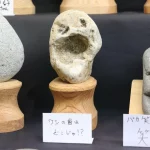According to the Secretary of Science and Technology, the National University of Science and Technology (NUST), COMSATS, and the National University of Technology (NUTECH) receive 80% of Ministry of Science and Technology development funds.
He made this assertion while briefing the Senate Standing Committee for Science and Technology under Senator Shafiq Tarin’s chairmanship.
The secretary of the Ministry of Science informed the committee that NUST projects receive 50 percent of the Ministry’s development budget, while NUTECH and COMSATS programs receive 30 percent each.
Due to poor project planning, other institutions saw their share decrease significantly.
NUTECH representatives informed the committee that they had successfully developed an independently produced ventilator and world-class medical and industrial products such as 3-D printers and peritoneal dialysis machines.
N UST’s Leadership in Research and Development Funding

Recent disclosures by the Secretary of Science and Technology show that NUST is leading in terms of research and development funding from Pakistan’s Ministry of Science and Technology, with 50% allocation from their development budget to NUST alone – an impressive achievement and testament to its dedication towards cutting-edge research and innovation.
Comsats’ Rise as a Research Powerhouse
Recently, the Committee on Science and Technology learned of remarkable strides made by COMSATS — Commission on Science and Technology for Sustainable Development in the South — in procuring research funding. Allocated 30% of the Ministry of Development budget, COMSATS has strategically utilized these funds to enhance its research infrastructure and initiate groundbreaking projects across multiple scientific domains. COMSATS’ commitment to sustainability and development has garnered recognition and support from government officials and other universities worldwide.
NUTECH’s Self-Sufficiency and Technological Breakthroughs
NUTECH showed impressive self-sufficiency during a Senate standing committee briefing, producing a world-class ventilator independently – evidence of its commitment to meeting healthcare challenges head-on. Furthermore, its production of world-class medical and industrial products like 3-D printers and peritoneal dialysis machines shows their transformative effects across various industries.
Review Fund Allocation Criteria
As scrutiny over the distribution of Ministry of Science and Technology Development funding increases, questions arise regarding its fairness. A significant disparity in funding between the top three universities and other institutions illustrates a need for more equitable allocation criteria. As part of its responsibilities as Senate standing committee chairperson, Senator Standing Committee must explore methods of supporting underprivileged institutions while encouraging balanced growth within the education and research sector.
The Importance of Project Planning in Fund Allocations

Poor project planning has been identified as one of the primary factors causing certain institutions to receive less development funding. Therefore, the Senate committee should prioritize improving project evaluation mechanisms so funds are channeled toward projects with clear objectives, deliverables, and potential for meaningful impact – this approach will maximize resource usage while simultaneously encouraging accountability and transparency within our society.
Promoting Collaborations to Advance Research Excellence
Given the uneven distribution of funding among universities, collaboration is highly advantageous. By encouraging joint research projects and knowledge-sharing initiatives between institutions, they could utilize one another’s strengths, expertise, and resources – leading to a more comprehensive and inclusive research landscape that benefits everyone involved in science.
Strengthening Emerging Research Institutions

Although NUST, COMSATS, and NUTECH have made remarkable advancements, it is vital not to overlook emerging research institutions’ potential. Devoting part of your development budget towards supporting promising but lesser-known universities can create an inclusive research ecosystem; by nurturing such institutions, the Ministry can tap into the undiscovered talent and discover breakthrough innovations that might otherwise remain unknown.
Strengthening Accountability for Research Funding
Transparency and accountability in the use of research funding are of utmost importance. To do so, the Ministry of Science and Technology must implement rigorous monitoring and evaluation mechanisms, monitoring funded projects in real-time. By setting clear performance indicators and conducting regular assessments, the government can ensure taxpayer money is utilized optimally and research objectives met effectively.
Promoting Industry-Academia Collaboration

Fostering stronger ties between academia and industries is vital to bridge the gap between academic research and practical applications by incentivizing collaboration and technology transfer from the government. Industry partnerships also provide universities with additional sources of funding that reduce dependence on government grants.
Promoting STEM Education at the Local Level
Promoting STEM education at a grassroots level is integral to Pakistan’s continued scientific and technological progress and overall development. The government can inspire the next generation of researchers and innovators by investing in primary and secondary school education programs emphasizing science, technology, engineering, and mathematics. Such an investment in human capital could profoundly affect Pakistan’s scientific advancement and overall growth.












